Deep in the heart of Atlanta, it’s another beautiful day in the office of Leah Calvert. Prep is underway to take on more ambitious projects within her career in the home construction/architecture business world in the region is on the agenda. From building from the ground up to already erected ones being expanding, there isn’t a single complaint that could come out of Calvert when she speaks about her place of employment. “It’s a super fun job. I get to work with amazing architects and super cool people who build homes,” Calvert says during our phone conversation.
I asked Calvert about how she got inspired to go into the field that she is currently in and she begins to chuckle jokingly. Initially, she was striving to be a full-time musician. Calvert was at the age of five when her admiration for playing the fiddle began after becoming influenced by bluegrass music. Soon after that, Calvert started to pick up writing poetry and studying more on the wood instrument. The love for playing the fiddle presented opportunities as she got older. Some of the highlights include being a part of John Driskell Hopkins Band (founded by the member of the popular Zac Brown Band) and her group The Dappled Grays. An opportunity to go on tour with a rising R&B musician a couple of years ago was the big chance for Calvert to further her goals, but it was canceled abruptly. “I had quit everything I was doing. I quit teaching all of my lessons, quit all of my gigs,” she says. “For a year I had nothing coming up.” With her availability now wide open, a friend offered a general contracting position within their company. Calvert having knowledge of the job was already a step above most in part due to doing some work with her father. So it was relatively easy to accept the position without any hesitation.
Calvert does admit that it took her some time to discover her voice as an artist. Listening from others that were telling her what to do, Calvert had those impressions weigh heavily on her mind throughout most of her life. It wasn’t until the birth of her daughter when she called her “bildungsroman” moment suddenly appeared. “I think there are those turning points for people, whatever they may be, that you just realize that it doesn’t matter. It is only what you think about yourself that is significant, assuming that you have the tools to get through life,” Calvert says. “What other people think about what you do is irrelevant.”
The recording of the sound for Calvert’s solo album Satellite went through several adaptations. In the beginning, she tried to make it contain a bluegrass influence which led to more of an avant-garde feel. Meeting up with musicians Marlon Patton and Rick Lollar of Atlanta rock outfit Weisshund indeed provided the much-needed assistance for the songs to move forward. “Despite me trying to find my voice and realizing that it was something I need to do independently, the desire and really the need to collaborate is so intrinsic that is how I work,” Calvert says. “Even building a home, assembling a team of people to create a great product is key. (Patton, Lollar) have not only a rich friendship, but they also have a rich musical relationship that created a vibe that’s easy to work within. Their music fit with what I wanted to do. I don’t know if that was necessary the intent, but I feel like their personalities sparked me to create music more so than anything.”
Having been sitting around for a period, Calvert was also influenced by the writings of environmental activist Wendell Berry’s “How to Be a Poet.” Reading the work initially in college, Calvert began to process more on what the core of oneself should be: family. Discovering this clarity when the world is distracted by the everyday grind rituals of life and not allowing it to take hold of you is important, Calvert feels. “I do think it’s easy to be sucked down the vortex of buying stuff, doing errands, whatever it is your doing. It doesn’t speak to the foundation that that is what you are trying to accomplish.”
Now that Satellite is officially out for listeners to hear, Calvert has found a sense of peace. She mentions that she loves the rawness of parts of the album, but there’s a bit of timid feeling; something is not right in some places. Having this feeling in some ways feels as if Calvert will be carrying it into future recordings. As for what her co-workers think about her music career, let’s just say that there’s no worry about Calvert drifting off into the sunset. “I’ve found a nice middle ground between my job and music. The guy that I work for thinks it’s awesome that I play music (laughs).”
Facebook | Twitter


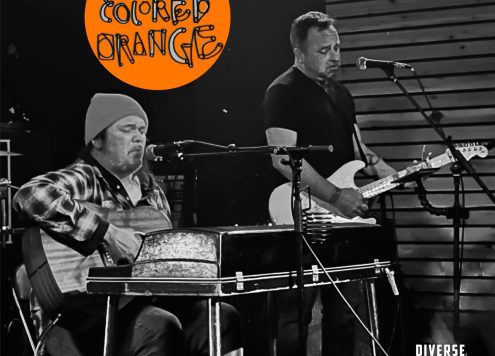
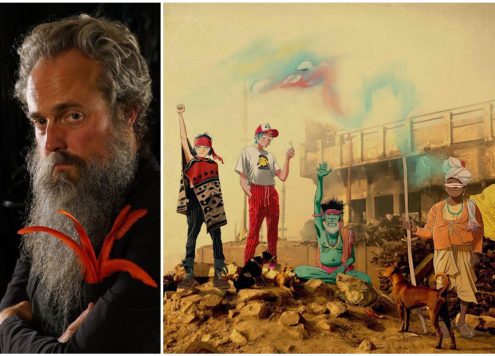

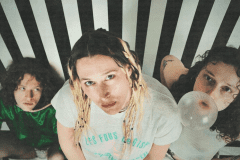
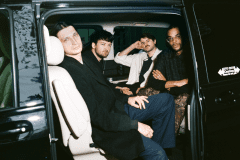
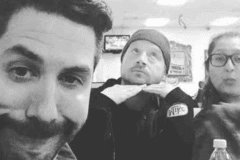
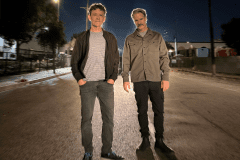

Social Media